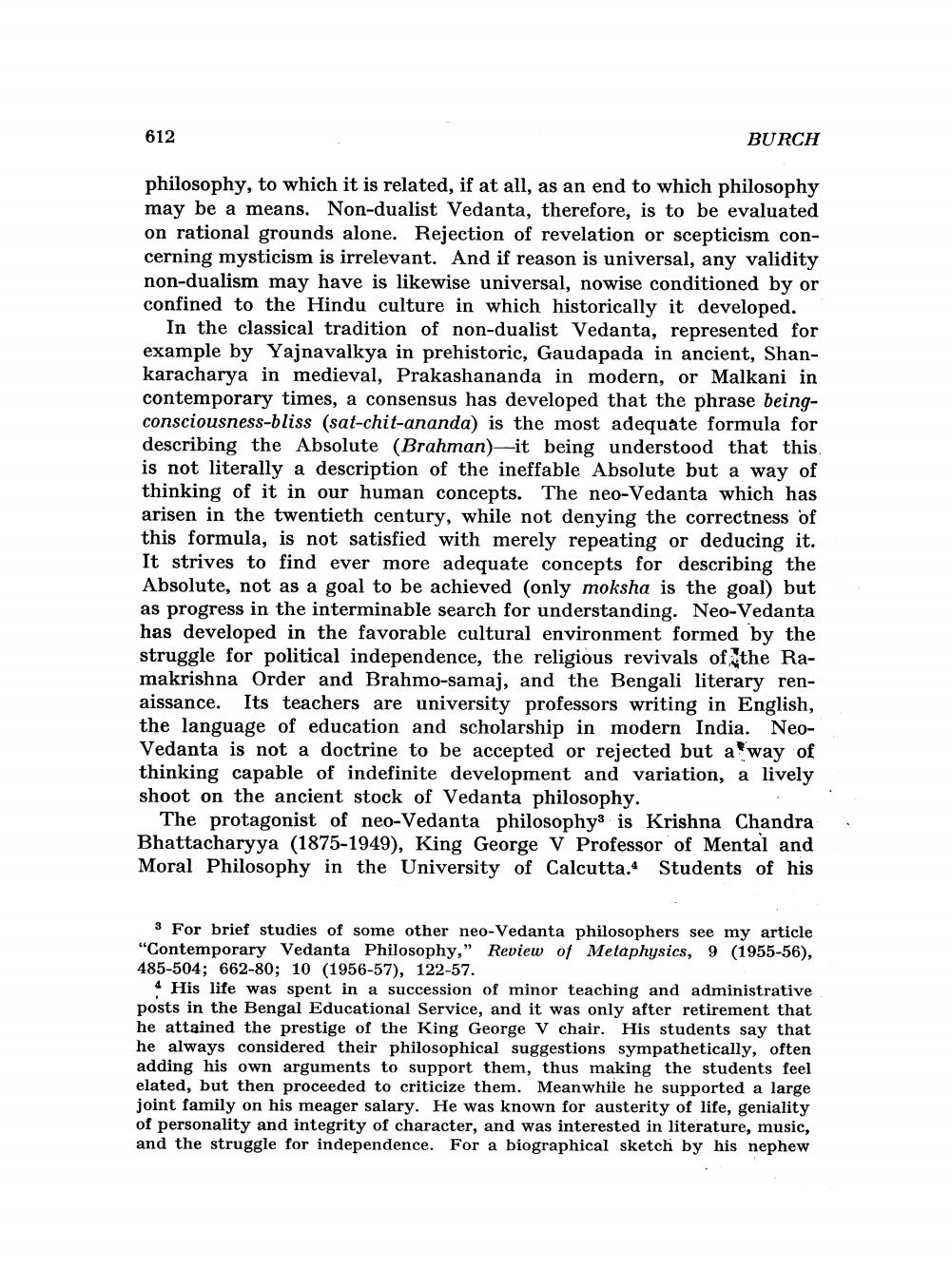Book Title: Search For Absolute In Neo Vedanta Author(s): George B Burch Publisher: George B Burch View full book textPage 2
________________ 612 BURCH philosophy, to which it is related, if at all, as an end to which philosophy may be a means. Non-dualist Vedanta, therefore, is to be evaluated on rational grounds alone. Rejection of revelation or scepticism concerning mysticism is irrelevant. And if reason is universal, any validity non-dualism may have is likewise universal, nowise conditioned by or confined to the Hindu culture in which historically it developed. In the classical tradition of non-dualist Vedanta, represented for example by Yajnavalkya in prehistoric, Gaudapada in ancient, Shankaracharya in medieval, Prakashananda in modern, or Malkani in contemporary times, a consensus has developed that the phrase beingconsciousness-bliss (sat-chit-ananda) is the most adequate formula for describing the Absolute (Brahman)—it being understood that this is not literally a description of the ineffable Absolute but a way of thinking of it in our human concepts. The neo-Vedanta which has arisen in the twentieth century, while not denying the correctness of this formula, is not satisfied with merely repeating or deducing it. It strives to find ever more adequate concepts for describing the Absolute, not as a goal to be achieved (only moksha is the goal) but as progress in the interminable search for understanding. Neo-Vedanta has developed in the favorable cultural environment formed by the struggle for political independence, the religious revivals of the Ramakrishna Order and Brahmo-samaj, and the Bengali literary renaissance. Its teachers are university professors writing in English, the language of education and scholarship in modern India. NeoVedanta is not a doctrine to be accepted or rejected but a way of thinking capable of indefinite development and variation, a lively shoot on the ancient stock of Vedanta philosophy. The protagonist of neo-Vedanta philosophy is Krishna Chandra Bhattacharyya (1875-1949), King George V Professor of Mental and Moral Philosophy in the University of Calcutta. Students of his 3 For brief studies of some other neo-Vedanta philosophers see my article "Contemporary Vedanta Philosophy," Review of Metaphysics, 9 (1955-56), 485-504; 662-80; 10 (1956-57), 122-57. • His life was spent in a succession of minor teaching and administrative posts in the Bengal Educational Service, and it was only after retirement that he attained the prestige of the King George V chair. His students say that he always considered their philosophical suggestions sympathetically, often adding his own arguments to support them, thus making the students feel elated, but then proceeded to criticize them. Meanwhile he supported a large joint family on his meager salary. He was known for austerity of life, geniality of personality and integrity of character, and was interested in literature, music, and the struggle for independence. For a biographical sketch by his nephewPage Navigation
1 2 3 4 5 6 7 8 9 10 11 12 13 14 15 16 17 18 19 20 21 22 ... 57
